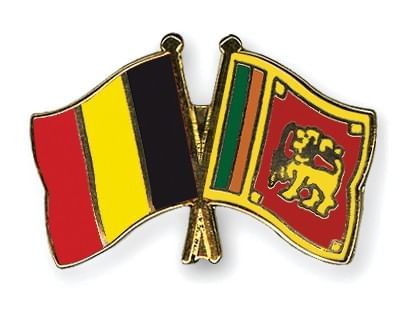Class 10 Exam > Class 10 Notes > Social Studies (SST) Class 10 > Mnemonics: Power Sharing
Mnemonics: Power Sharing | Social Studies (SST) Class 10 PDF Download
| Table of contents |

|
| 1. What is Power Sharing? |

|
| 2. Belgium vs. Sri Lanka |

|
| 3. Majoritarianism in Sri Lanka |

|
| 4. Accommodation in Belgium |

|
| 5. Why Power Sharing? |

|
1. What is Power Sharing?
Mnemonic: POWER
- P - Prevents one group from ruling alone.
- O - Organizes power for legislature, executive, judiciary.
- W - Works for peace and fairness.
- E - Ensures everyone is included.
- R - Respects all groups.
Explanation: "POWER" shows how sharing power keeps democracy fair and balanced.

2. Belgium vs. Sri Lanka
Mnemonic: BELGIUM vs. SRILANKA
- B - Balances power for all groups.
- E - Embraces Dutch, French, German diversity.
- L - Lets regions govern themselves.
- G - Gives equal say to avoid fights.
- I - Includes everyone to stay united.
- U - Updates laws for peace.
- M - Makes a strong power-sharing model.
Explanation: "BELGIUM" shows unity through sharing.
- S - Supports Sinhala majority rule.
- R - Raises Buddhism over other religions.
- I - Ignores Tamil rights.
- L - Limits Tamil language use.
- A - Angers Tamils, causing unrest.
- N - Neglects sharing power.
- K - Kindles long civil war.
- A - Alienates Tamils, leading to division.
Explanation: "SRILANKA" shows conflict from not sharing.
 Belgium Vs Sri Lanka
Belgium Vs Sri Lanka
3. Majoritarianism in Sri Lanka
Mnemonic: SINHALA
- S - Supports Sinhala control after 1948.
- I - Ignores Tamil language.
- N - Neglects Tamil jobs and education.
- H - Hurts Tamils with unfair rules.
- A - Angers Tamils, sparking separatism.
- L - Leads to civil war.
- A - Affects Sri Lanka’s growth.
Explanation: "SINHALA" explains how favoring one group caused trouble.

4. Accommodation in Belgium
Mnemonic: BRUSSELS
- B - Balances Dutch and French ministers.
- R - Recognizes regional freedom.
- U - Uses community government for culture.
- S - Secures fair laws for all.
- S - Stops fights between groups.
- E - Earns trust as EU hub.
- L - Lets languages coexist.
- S - Strengthens unity.
Explanation: "BRUSSELS" shows how Belgium shares power to stay peaceful.
5. Why Power Sharing?
Mnemonic: SHARE
- S - Stops fights between groups.
- H - Helps democracy work fairly.
- A - Allows everyone’s voice.
- R - Results in better outcomes.
- E - Ensures fairness for all.
Explanation: "SHARE" explains why power sharing keeps democracy strong.
The document Mnemonics: Power Sharing | Social Studies (SST) Class 10 is a part of the Class 10 Course Social Studies (SST) Class 10.
All you need of Class 10 at this link: Class 10
|
66 videos|798 docs|79 tests
|
FAQs on Mnemonics: Power Sharing - Social Studies (SST) Class 10
| 1. What is the concept of Power Sharing in a democratic society? |  |
Ans. Power Sharing refers to the distribution of authority and responsibilities among different levels of government and various social groups within a country. It aims to ensure that diverse communities and interests are represented in governance, fostering stability and preventing conflicts by promoting cooperation and mutual respect among different groups.
| 2. How does the power sharing mechanism in Belgium differ from that in Sri Lanka? |  |
Ans. Belgium employs a system of power sharing that accommodates its multiple linguistic and cultural communities, ensuring that no single group dominates. This includes a federal structure with significant autonomy for regions and linguistic groups. In contrast, Sri Lanka has historically followed a majoritarian approach, where the Sinhalese majority has held significant power, often marginalizing the Tamil and Muslim minorities, leading to ethnic tensions and conflict.
| 3. What role did majoritarianism play in the conflict in Sri Lanka? |  |
Ans. Majoritarianism in Sri Lanka contributed to the marginalization of ethnic minorities, particularly the Tamils. Policies favoring the Sinhalese majority, such as the Sinhala Only Act, fueled ethnic tensions and led to the rise of militant groups seeking autonomy for Tamils, culminating in a protracted civil war that lasted several decades.
| 4. How did Belgium accommodate its diverse communities through power sharing? |  |
Ans. Belgium's approach to accommodation involves a federal system where power is divided between central and regional governments, each representing different linguistic communities. This structure includes provisions for equal representation and decision-making power for French and Dutch speakers, which helps to prevent domination by any single group and promotes peaceful coexistence.
| 5. Why is power sharing considered essential in a diverse society? |  |
Ans. Power sharing is essential in a diverse society as it promotes inclusivity and fairness, reduces the likelihood of conflicts, and enhances social cohesion. By ensuring that all groups have a voice in governance, it fosters trust and cooperation among communities, which is vital for maintaining peace and stability in a multicultural environment.
Related Searches















